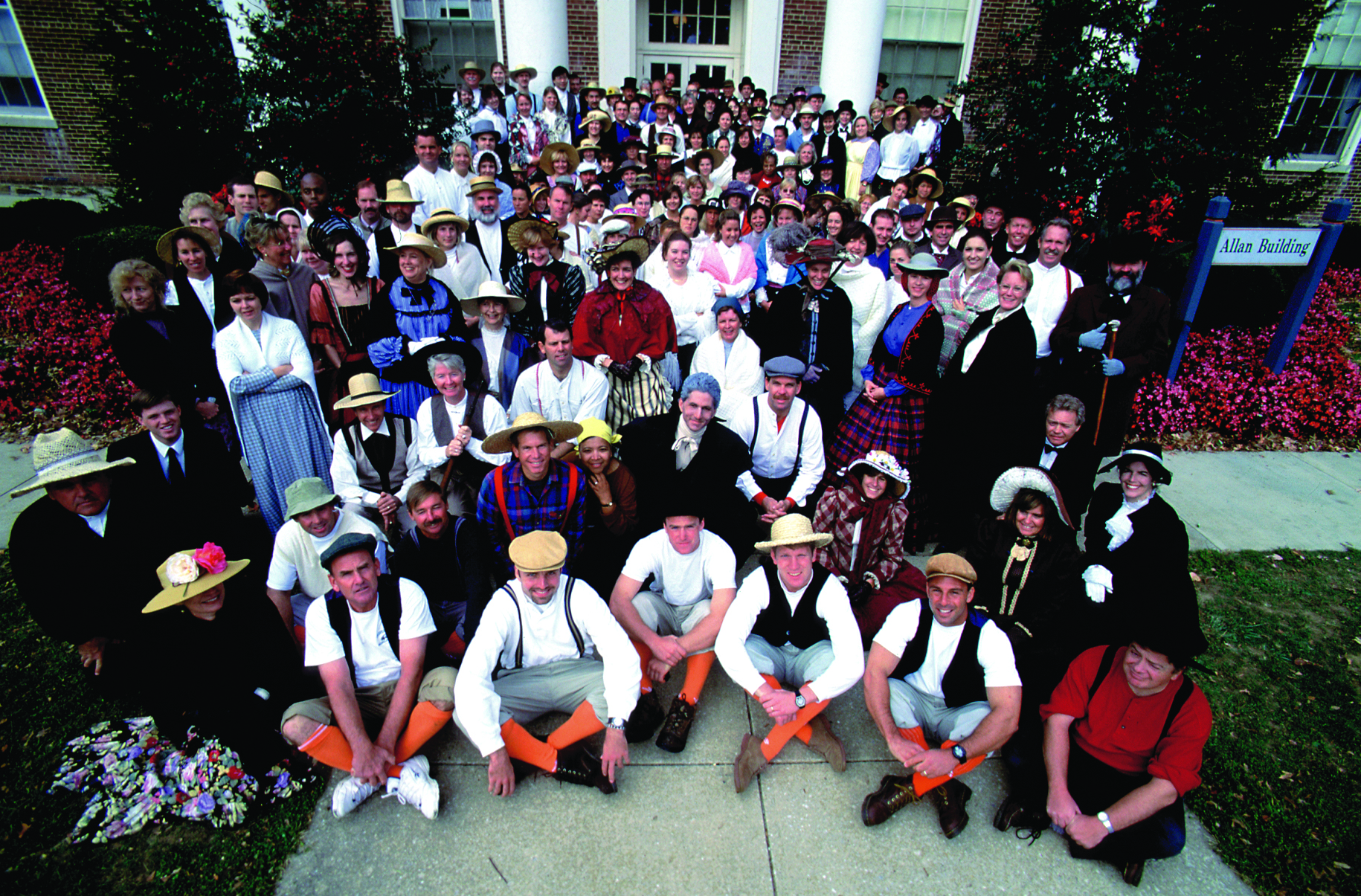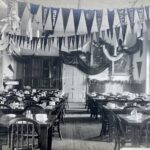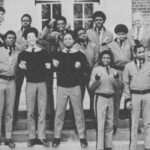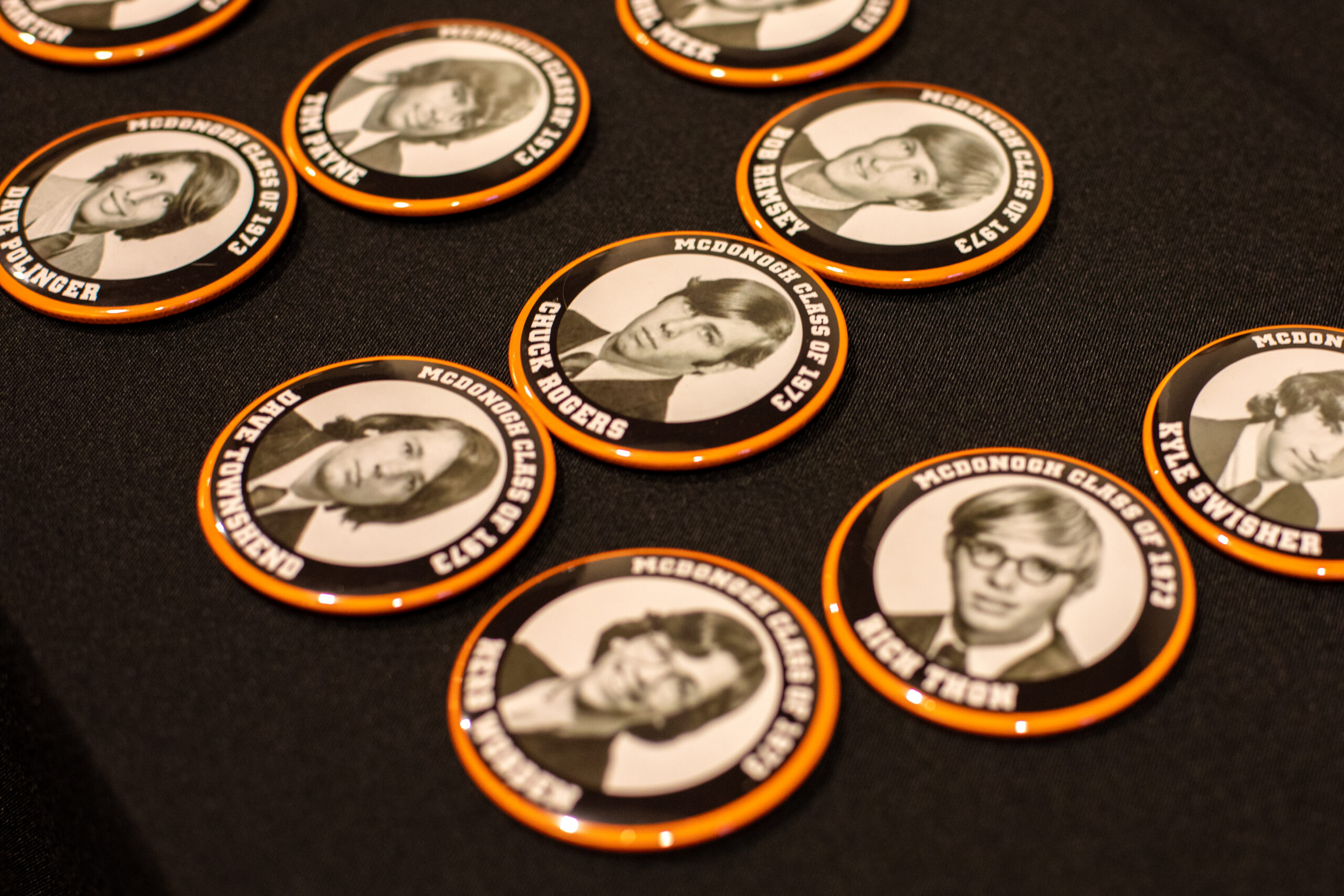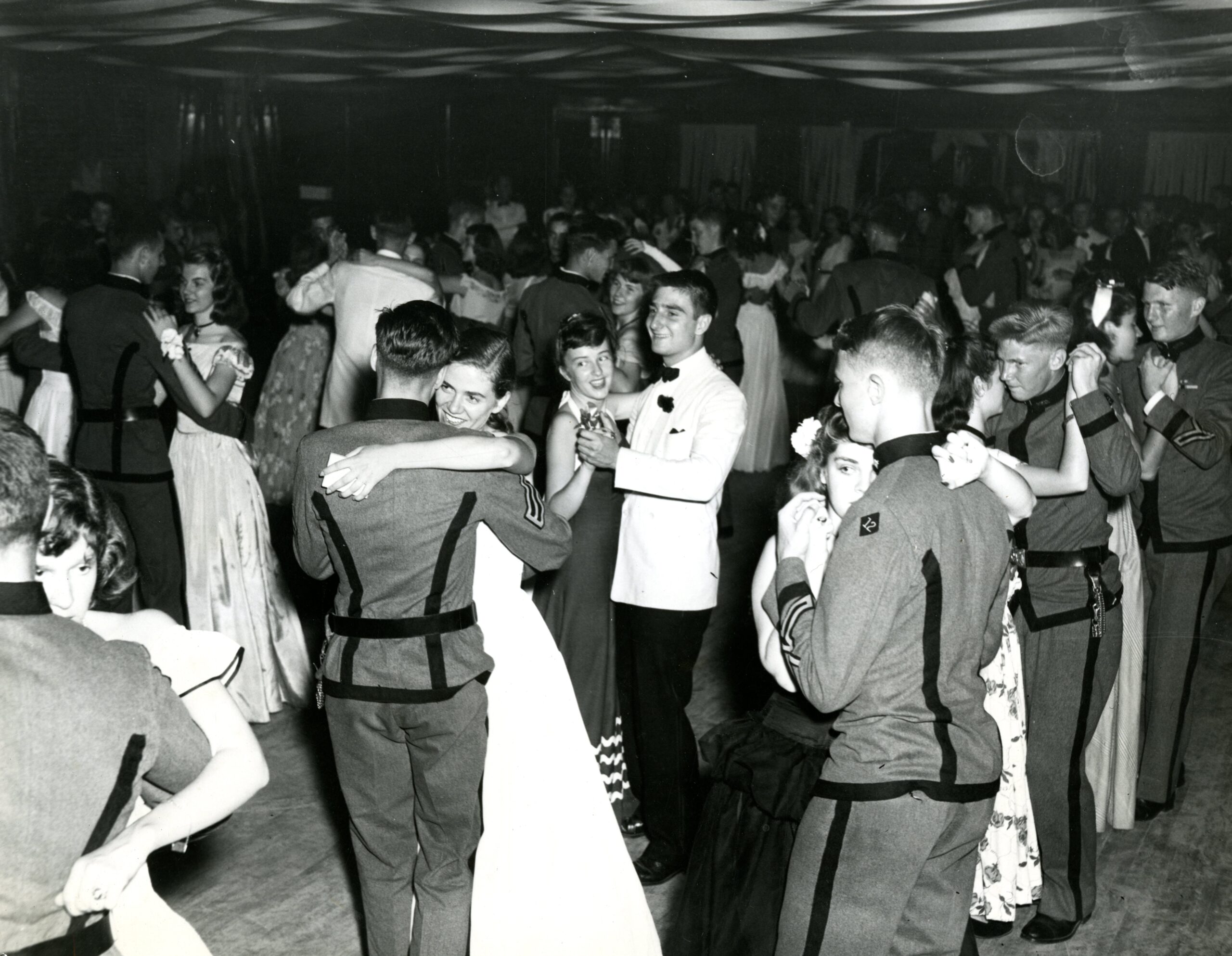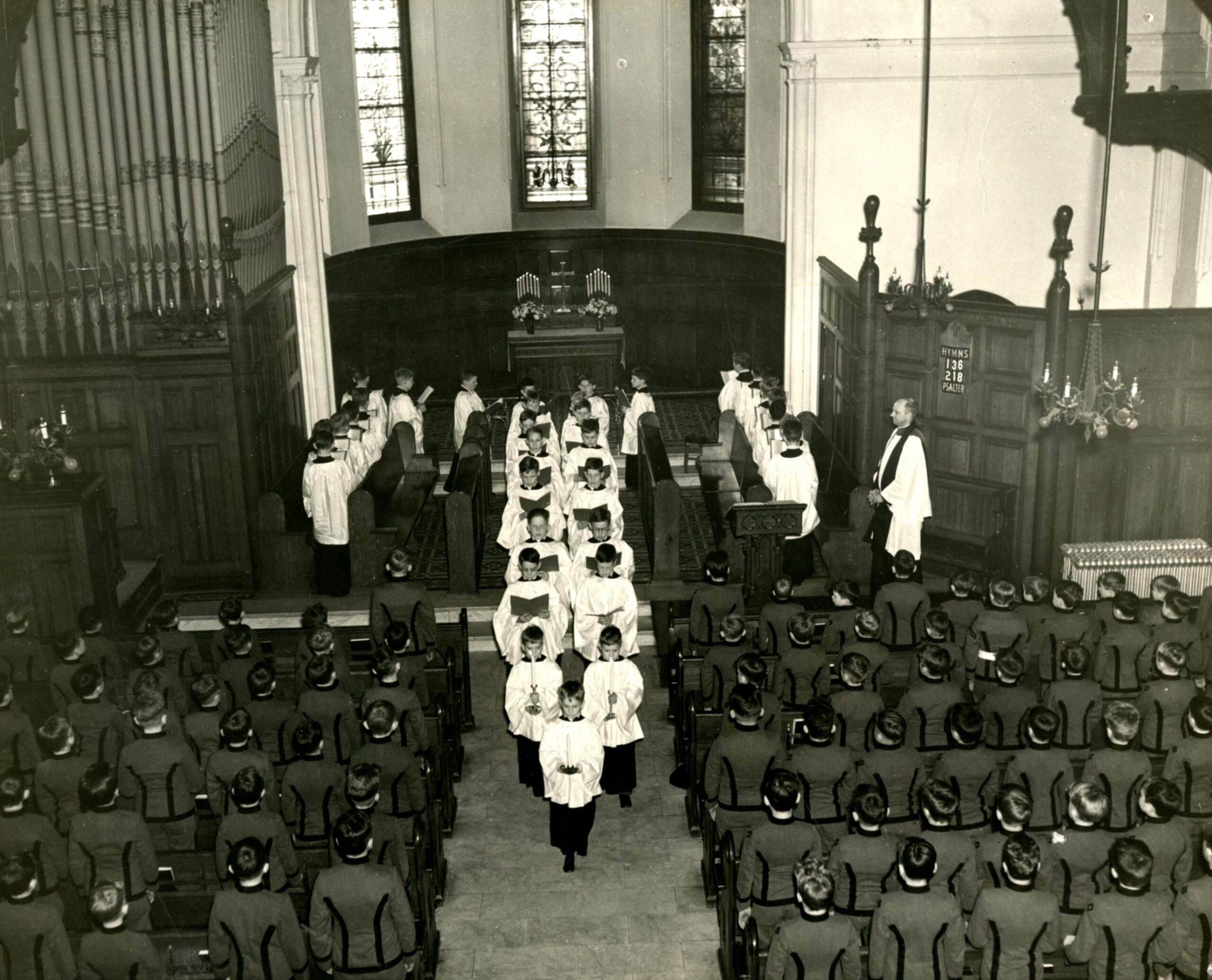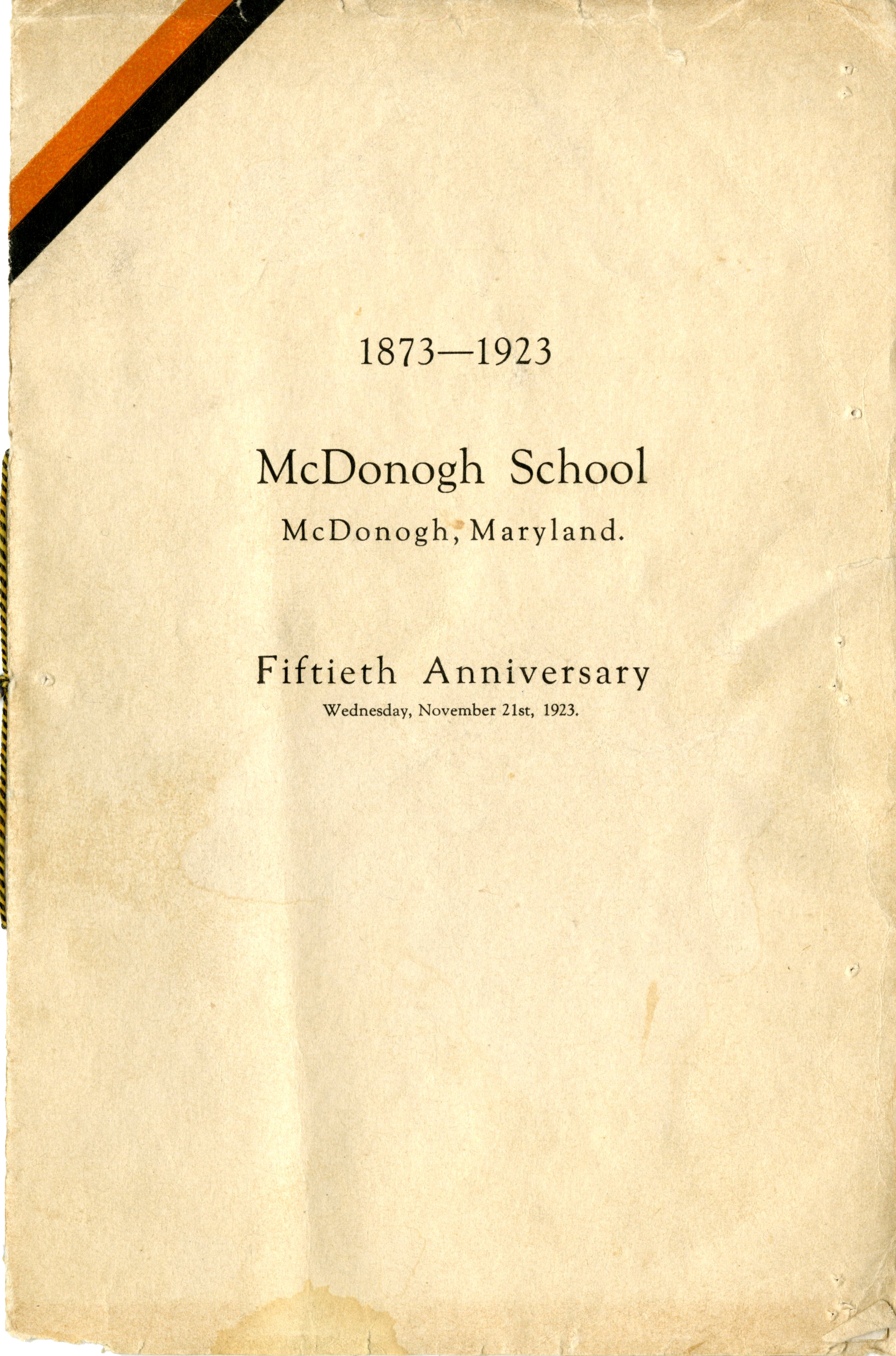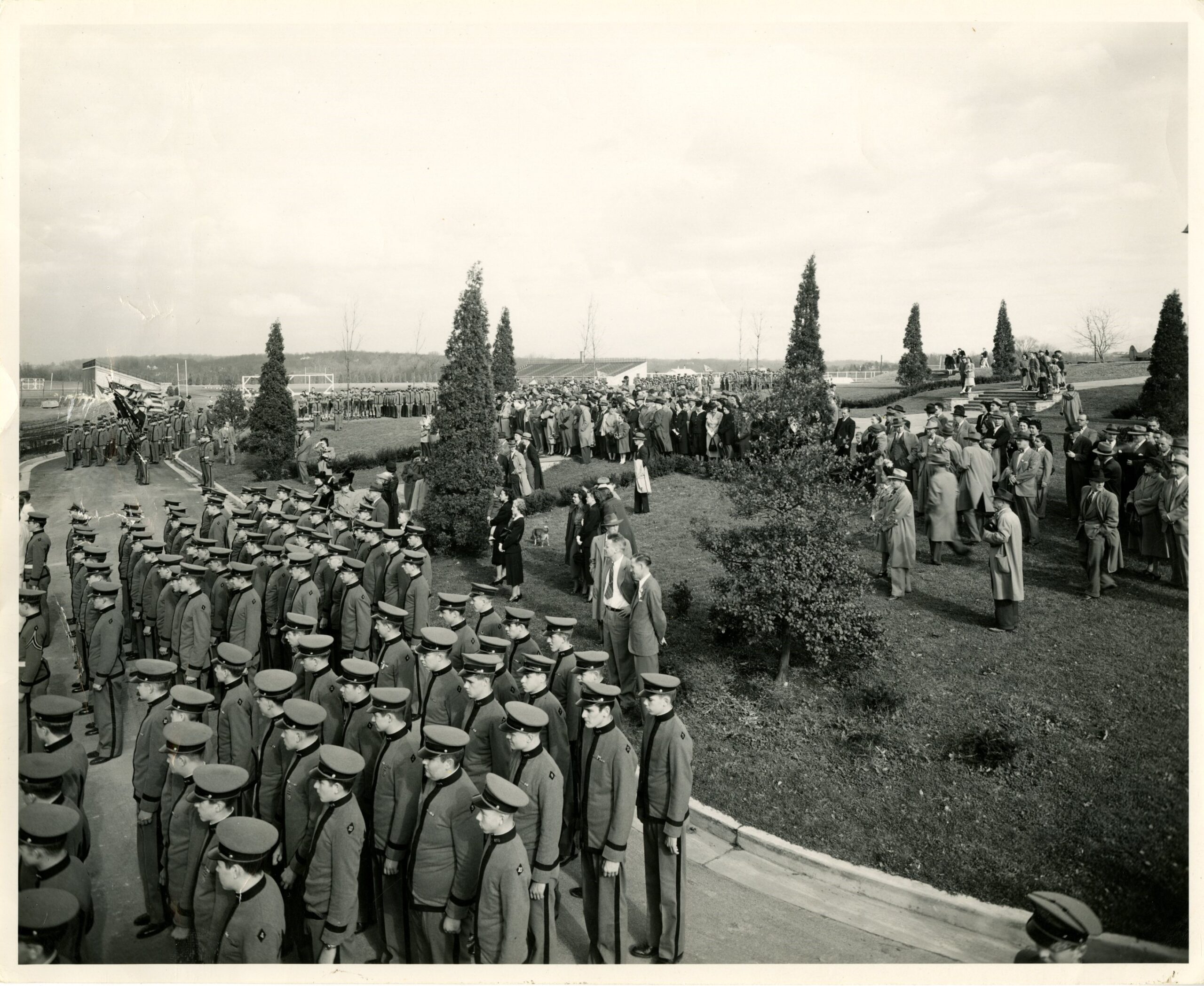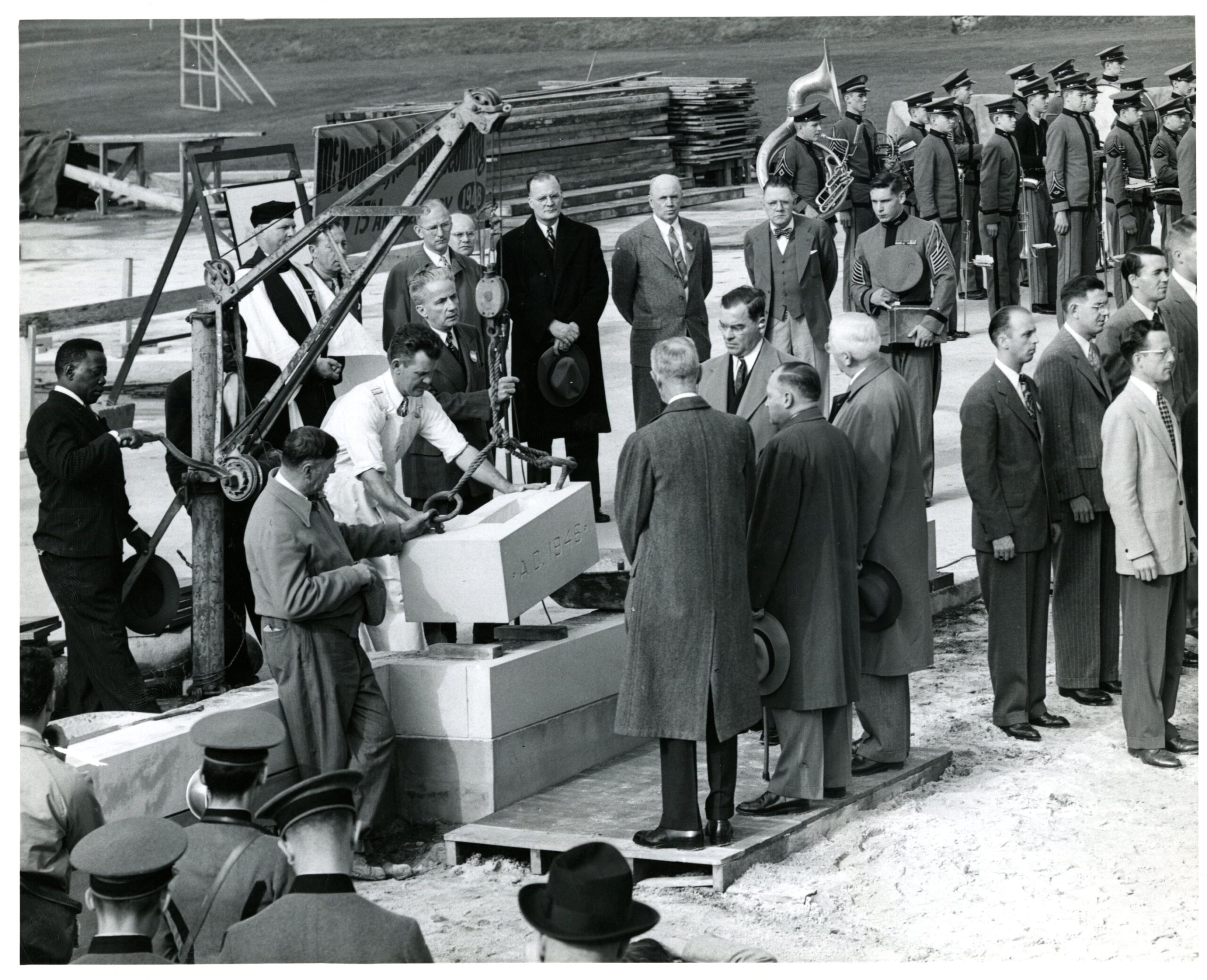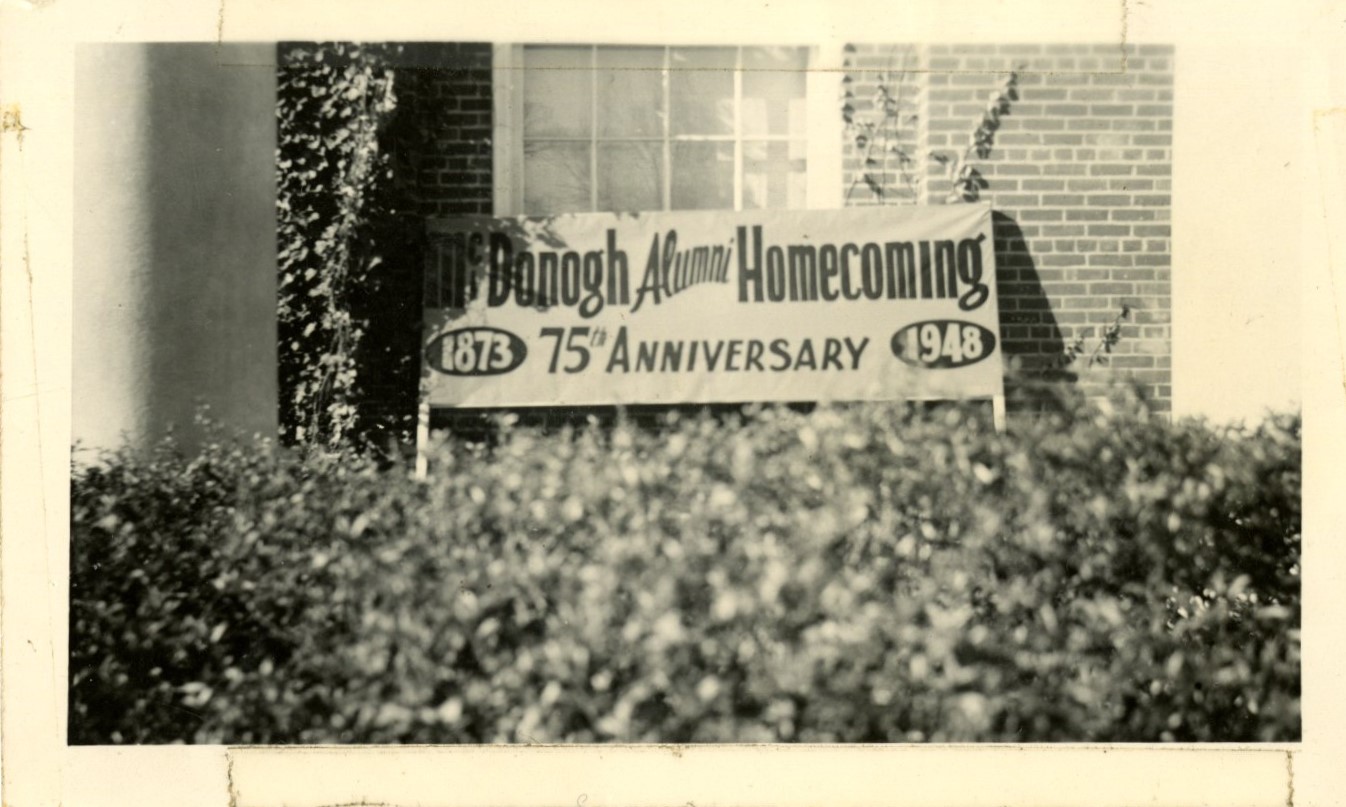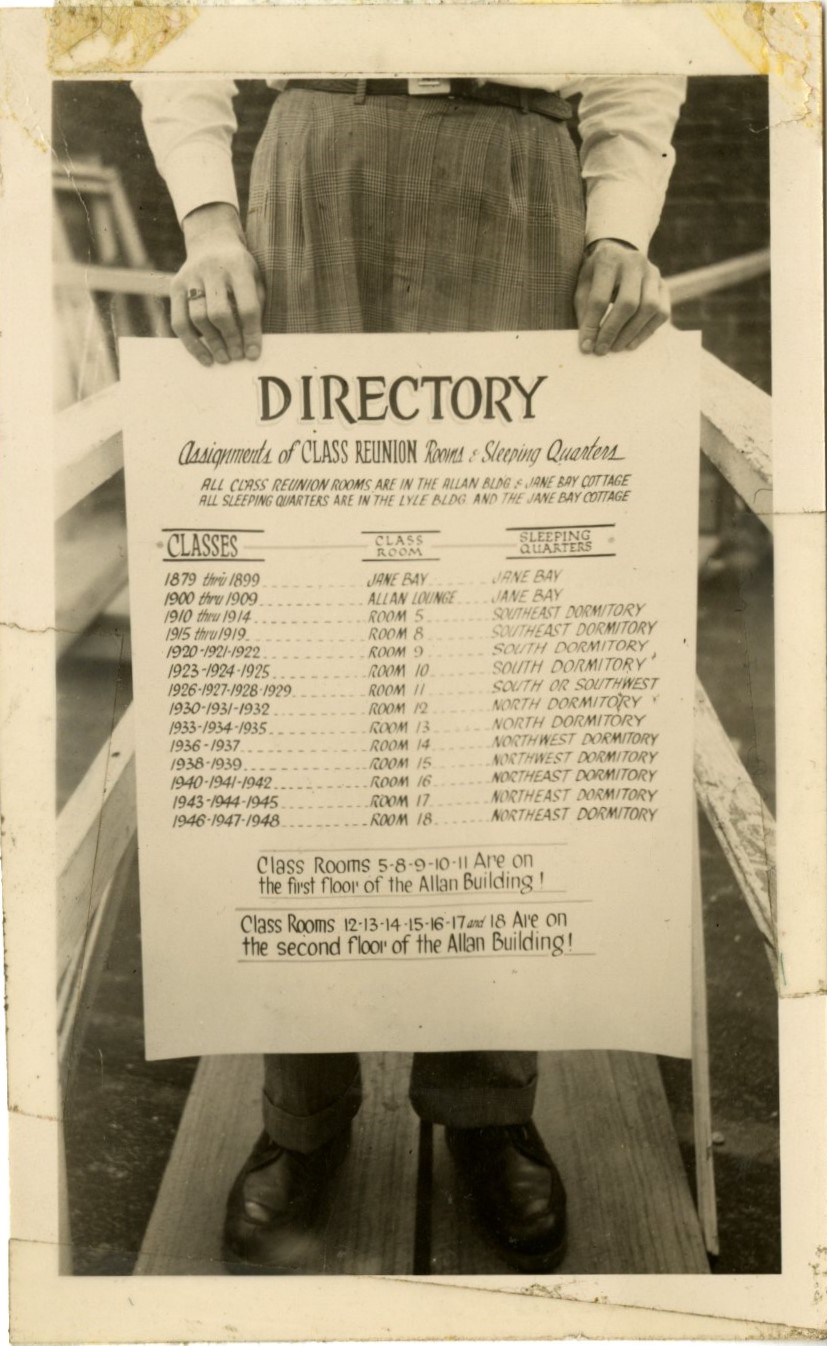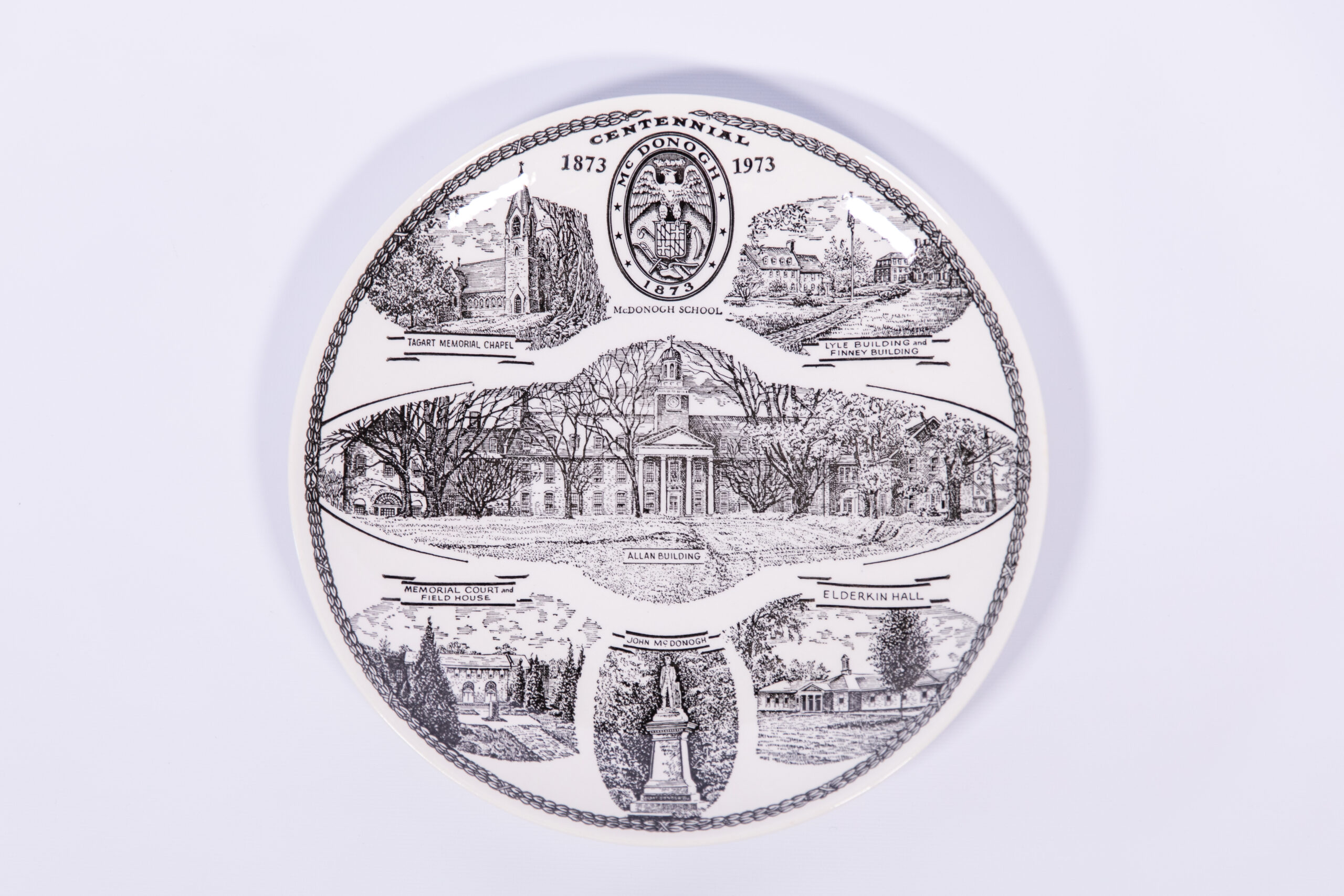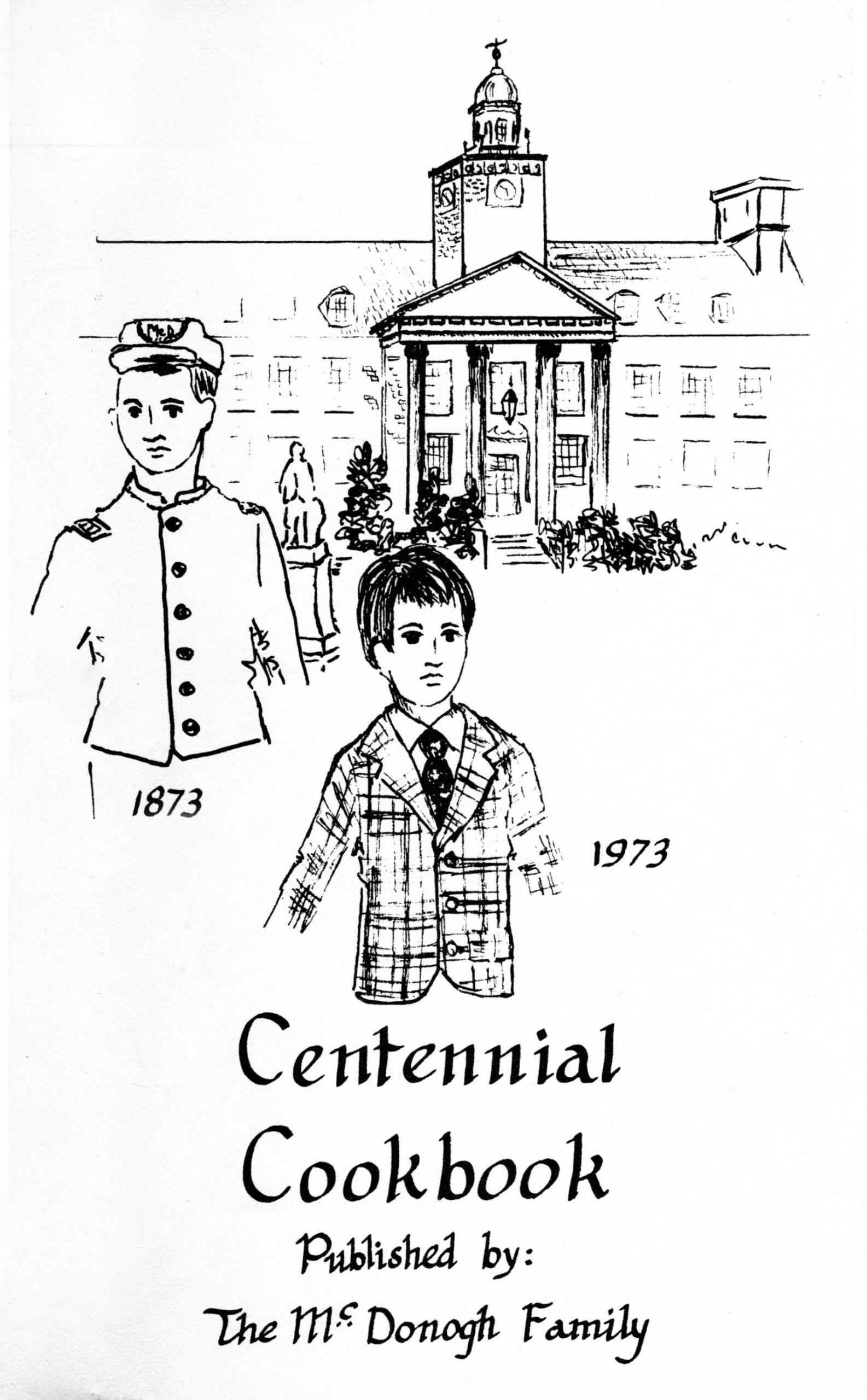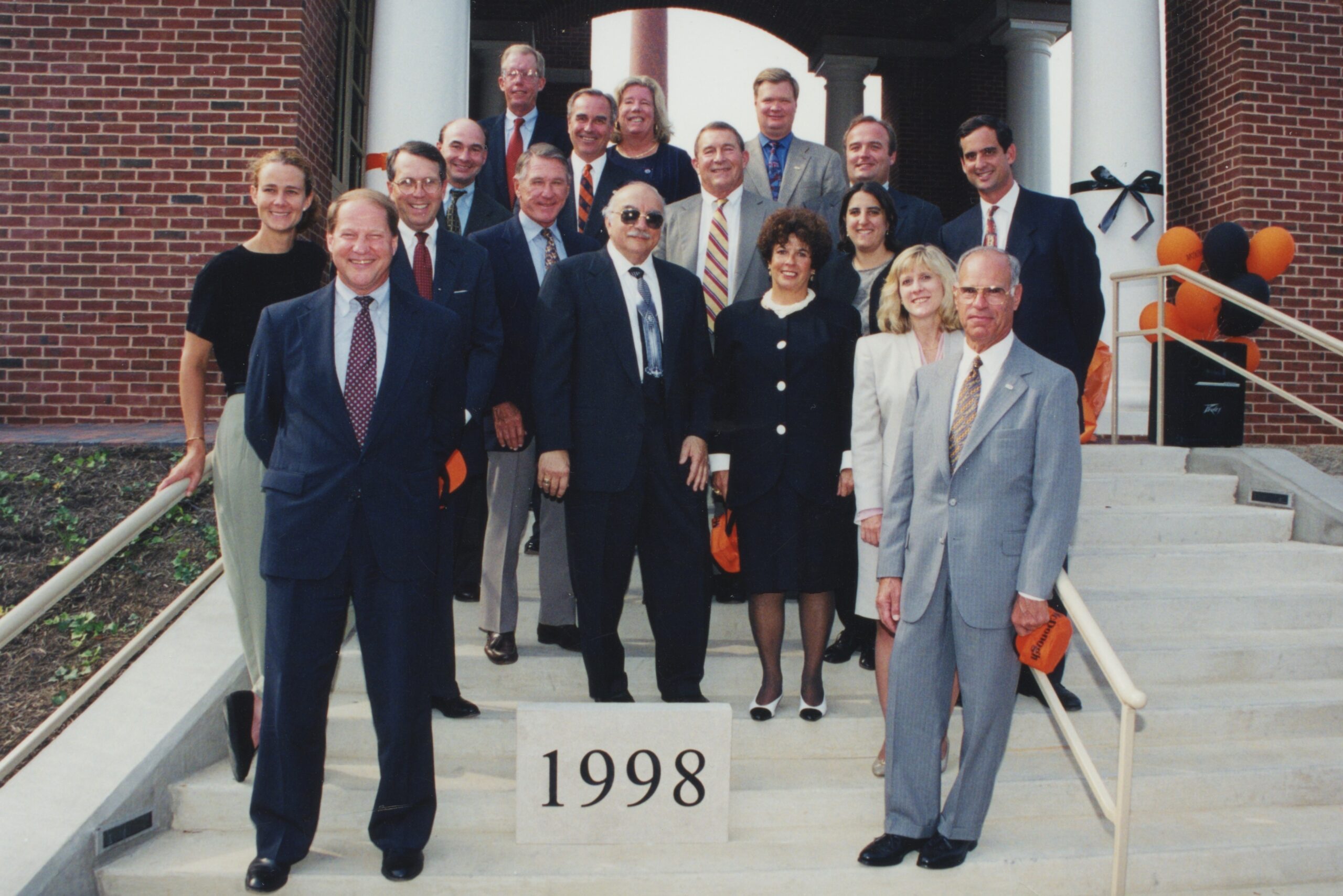The founding of McDonogh School on November 21, 1873, has always been a cause for celebration. In the early years, it was marked by Founder’s Day—an opportunity to recognize the official opening of the School, the architects of its structure, and the first students. John McDonogh, who died more than two decades before the school’s founding, was recognized on John McDonogh Day. Later the two events were combined. (See story No. 51 for the evolution of Founder’s Day.)
By the 25th Anniversary in 1898, Founder’s Day was well established and, as was tradition, alumni returned to campus for a day of speeches, reunions, and a turkey dinner. In 1923, the Alumni Association, whose mission was to host events and keep alumni engaged, was tasked with planning the 50th Anniversary celebration. The Week reported that in preparation for the celebration, the boys spent the week before “tyding up the place” in anticipation of the alumni who were expected to attend the celebration. The festivities began at 10:45 a.m. on Wednesday, November 21 with a dress parade by the cadet corps, followed by a Founder’s Day meal. The afternoon was devoted to speeches, a march of the alumni classes, a turkey dinner, songfest, the tapping of a barrel of one-day-old McDonogh cider, and a scoreless tie between two alumni football teams. The Mayor of Baltimore accepted an invitation to attend the celebration and was quoted in the Sunday Sun newspaper saying, “I am deeply interested in educational institutions, and have a warm spot in my heart for McDonogh which has done splendid work for orphan boys.”
The December 1, 1923, issue of The Week hailed the celebration as a “great and glorious day” and reported that William Irvine James (1877), one of the original 21 students, gave a speech “full of wit and humor” as he made “McDonogh of the 70s actually come alive again.” After dinner, there was a “smoker” during which cigars and cigarettes were available to alumni to enjoy while they talked about old times.
Building on the success of the 50th Anniversary, the Alumni Association planned the 75th Anniversary or Diamond Jubilee. Despite the elegant name, informality was the theme. Several thousand alumni were expected to attend a weekend-long celebration in 1948 and every “old boy” was offered accommodations on campus. For historical purposes, they were asked to bring old uniforms, equipment, and issues of The Week. They were also encouraged to bring a camera to take pictures of the “campus and people they had not seen in a while.”
Among the highlights of the weekend was the laying of the Memorial Field House cornerstone on Saturday, November 20. In attendance were the fathers of two McDonogh alumni who died in World War II. During halftime of the McDonogh vs. Severn football game, alumni filled the field behind their class banners and pennants. That evening, after a buffet dinner in the dining room, the alumni gathered in the gym for a showing of the McDonogh movie, musical routines, group songs with audience participation, and the reading of fictitious letters from boys to their parents. Guests awoke on Sunday morning to the sound of cannons and bugles.
In celebration of McDonogh’s 90th Anniversary in 1963, the Board of Trustees launched a fundraising campaign to support physical improvements to the School, namely the construction of the Lower School building, later named Elderkin Hall, and an addition to Allan Building. The Leadership Committee for this campaign was the foundation for the McDonogh Fund.
The 100th Anniversary of the school in 1973 included elements of past celebrations, including speeches, a ceremony honoring alumni who died in World War II, a football game between McDonogh and Gilman (with a cross country meet at halftime), an alumni reception, and the Founder’s Day Dinner. The Mothers Club produced a cookbook, and other items such as a bumper sticker and a commemorative plate were available for sale.
In 1998, the School marked its 125th Anniversary with a celebration filled with opportunities to honor the past while recognizing progress. The year began with a gathering of the entire community for the dedication of the Clarence A. Burck Center for the Performing Arts. The ceremony featured the laying of a cornerstone with a time capsule filled with artifacts from each division. Later in the fall, the Burck Center and the Ceres M. Horn Theatre officially debuted at a black-tie event for donors and special guests. The event showcased an alumni art exhibit and a revue starring a talented ensemble of students and performing arts alumni.
The 125th Anniversary is also remembered for the re-enactment of McDonogh School’s opening day—November 21, 1873. Dressed in 19th-century garb, the student body, faculty, and staff watched as key figures responsible for the founding of the School—John McDonogh, Colonel Allan, Old Man Lyle, Josepha Young, and the original 21 boys—were brought to life. The day continued with a country fair for the Upper School featuring crafts, games, and food typical of the late 1800s.
